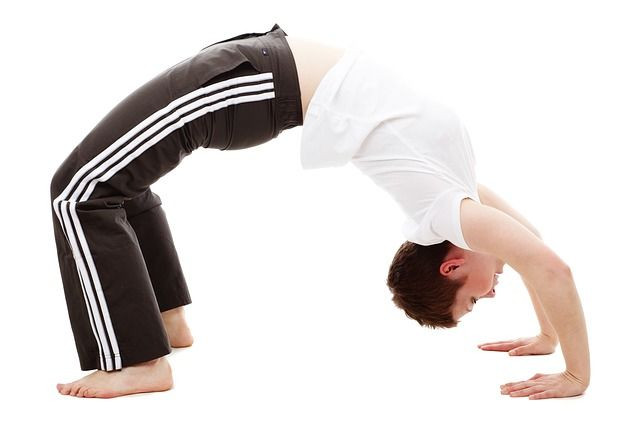Study: Slumping And Slouches Raises Blood Pressure

Our particular human species was built for movement, likely tracking large game-long distances across the African Savannah.
But somewhere between the Savannah and the city, we lost our way, hunching over computers and steering wheels and slumping on subway seats and the sinecure that is modern life for many in the developed world.
Scientists say poor posture while sitting, standing and slumping may cause hypertension, incontinence, heartburn and headaches. It may also cause bloating and make breathing more difficult for asthmatics.
"We fight against gravity the whole time," said Robert McCoy, a doctor of osteopathic medicine and lecturer on anatomy at the British School of Osteopathy. "It takes about 10 minutes of sitting or standing before the muscles in the spine and abdomen that hold us up start to get tired, and we lean forward."
The brain-body connection goes not one way but both ways, all ways, researchers said. Neuroscientists at the University of Leeds in the United Kingdom reported in 2007 that neck muscle cells signal the brain when sensing movement in the neck, possibly ensuring adequate blood supply as the body changes posture. The system, however, breaks down when cells incur damage from poor posture, resulting in blood pressure either higher or lower than optimum.
"It's possible that poor posture, which compresses the neck muscles, may be involved in high blood pressure, too, but more researcher is needed," McCoy said.
As if hypertension wasn't enough, poor posture has been implicated in a host of other problems, the Daily Mail reported. Studies by the University of Queensland show a correlation in women between prolapse -- when the pelvic organs fall from position -- and poor positioning of the spine, a less pronounced S-shape with a natural curve near the neck and lower spine.
"If you're sitting in a slumped, C-shaped posture," said Sammy Margo, of the Chartered Society of Physiotherapy, "there's more weight bearing down on your bladder and pelvic floor muscles, which will weaken them over time and make you more likely to leak."
She adds that good posture may also enhance enjoyment of sex, as strong pelvic floor muscles correlate to more and better orgasms (in women).
A study last year by San Francisco State University found reason for both men and women to smile, however. Lead investigator Erik Peper, a professor of health education, says proper sitting and standing posture sends messages to the brain that boost feelings of well-being.
"When you choose to put your body in a different mode, it's harder to drop into depression," he said.
Indeed, recent studies including one published in the journal Psychological Science last year show that physiological cues, such as smiling, compel the brain to recover from stressful events. But careful: If you're a woman, too much fake smiling may backfire and cause gloomy feelings from exhaustion, particularly for those working in the service industry, the Telegraph reported in 2011.
McCoy says poor posture might cause heartburn as the body tips out of alignment, the Elvis and its contents shifting forward.
"The pelvis is like a bowl, and when we stand up straight we hold it flat," he says. "But as you shift forward, the bowl tips forward and the contents, such as the stomach and digestive organs, shift, too."
Likewise, asthmatics might notice more labored breathing as the lungs slump forward and become compressed with the diaphragm moving up further in the chest. Tensions in muscle at the base of the skull, furthermore, may pinch the trigeminal nerve there, causing "cervicogenic headache."
And most people don't know that bloating, closely related symptomatologically to osteoporosis, is one of the first harbingers of spinal and brittle-bone problems.
Published by Medicaldaily.com



























